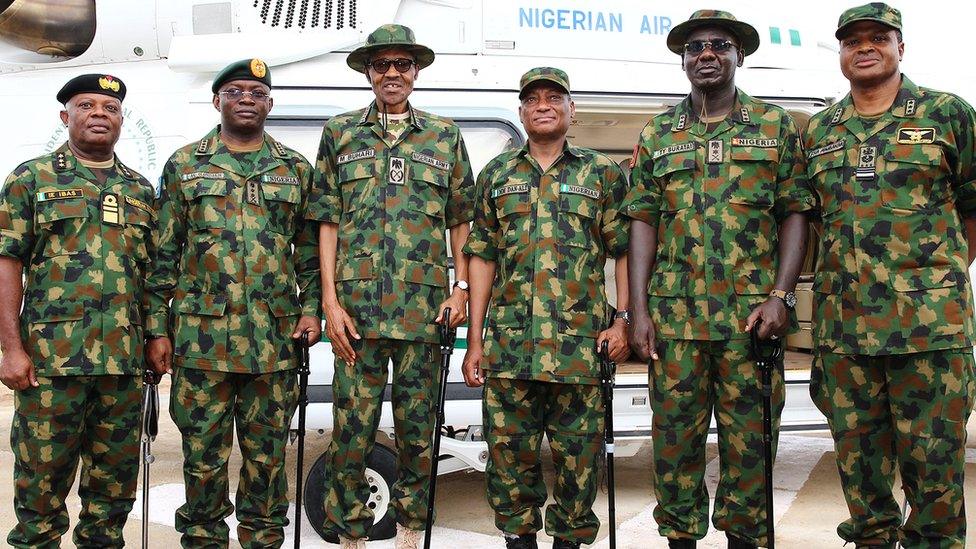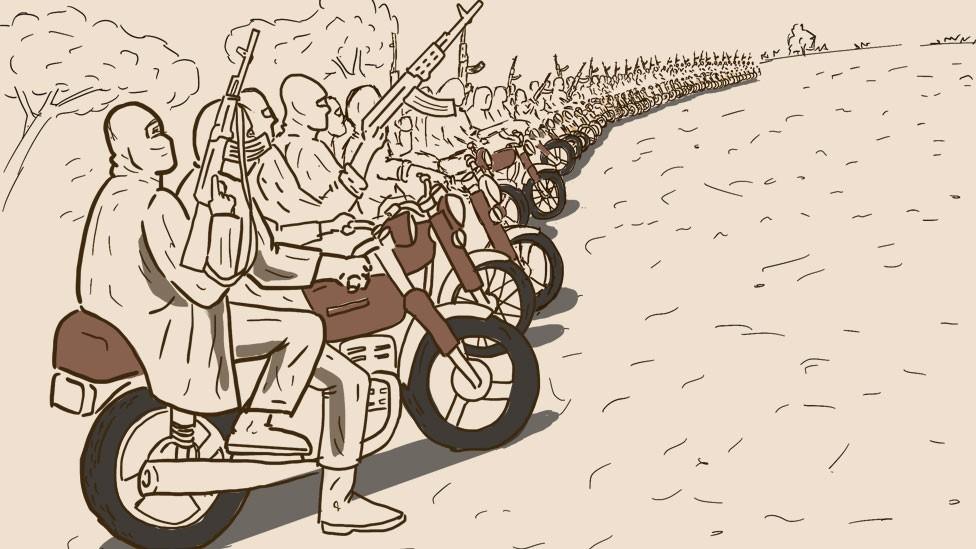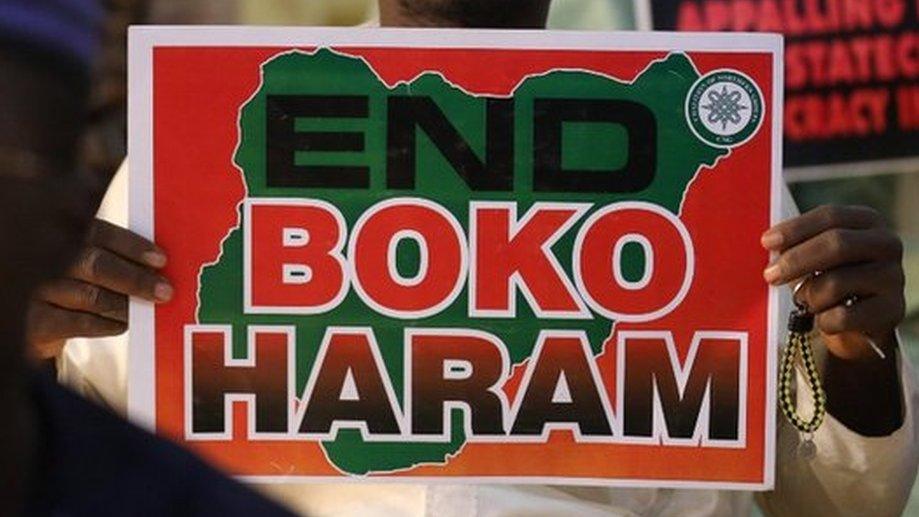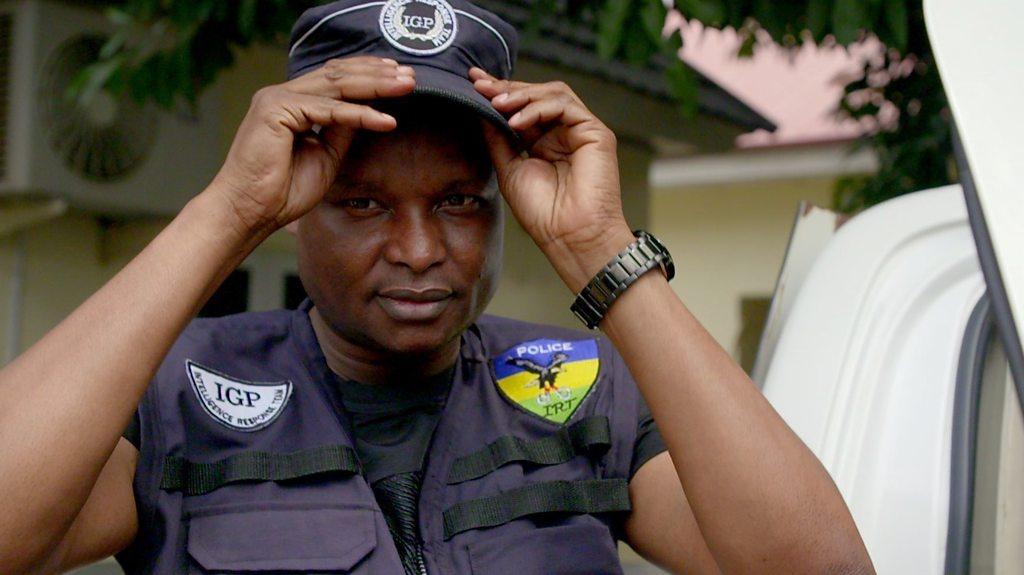Nigeria's President Buhari fires armed forces chiefs
- Published

President Buhari (third from left) said he had accepted the military chiefs' "immediate resignation"
Nigeria's President Muhammadu Buhari has fired the heads of the country's armed forces whom he appointed when he first took office in 2015.
In a surprise move, he also tweeted the names of their replacements.
No reason was given for the resignations of the army, navy, air force and chief of defence staff heads.
It comes as Nigeria continues to grapple with widespread insecurity including the long-running Boko Haram insurgency and rampant kidnappings.
There have been calls, notably from the country's powerful governors and the National Assembly, for the president to replace the service chiefs as many felt they were underperforming.
Mr Buhari, a former army general, was elected in 2015 on the promise of ending the insurgency in Nigeria's north-eastern region.
Boko Haram’s decade of terror explained
However, Boko Haram continues to stage attacks despite the government saying on several occasions that Islamist militants have been defeated.
Other Islamist militant groups operating in the region have also become bolder.
Under Mr Buhari's leadership, clashes between farmers and cattle herders in the country's central region have also worsened and kidnapping gangs in the north-west operate with almost a free hand.

'Long overdue'
Analysis by BBC's Ishaq Khalid
The outgoing military chiefs have served for about five years - making their tenure the longest since Nigeria returned to democracy in 1999.
They were initially praised for how they dealt the militant group Boko Haram and its splinter faction Iswap.
In 2015, the militants controlled vast swathes of territory and there were frequent suicide bombings. This is no longer the case, however the insurgents continue to carry out attacks on both military and civilian targets - mostly ambushes.
The security chiefs have also faced a lot of criticism for the dramatic rise of criminal gangs who kidnap for ransom. In December more than 300 boys were taken from a school in the north before they were later released following negotiations with the abductors.
Nigerians, who see this move as long overdue, hope the new security chiefs will work to make the country safer, but analysts say more needs to be done to provide the military with the right equipment and funding, as well as looking after the welfare of troops, before any tangible changes will be seen.

Who's in, who's out?
Defence staff chief: Gen Abayomi Olonisakin replaced by Maj-Gen Leo Irabor
Army: Lt-Gen Tukur Buratai replaced by Maj-Gen I Attahiru
Navy: Vice Admiral Ibok Ekwe Ibas replaced by Rear Admiral A Z Gambo
Air force: Air Marshal Sadique Abubakar replaced by Air-Vice Marshal I O Amao
The presidential spokesman tweeted photos of the new chiefs:
Allow X content?
This article contains content provided by X. We ask for your permission before anything is loaded, as they may be using cookies and other technologies. You may want to read X’s cookie policy, external and privacy policy, external before accepting. To view this content choose ‘accept and continue’.


You may also be interested in:
How a man dubbed "Nigeria's Supercop" is tackling kidnapping and armed robbery
Related topics
- Published5 July 2020

- Published18 December 2020

- Published1 July 2019
